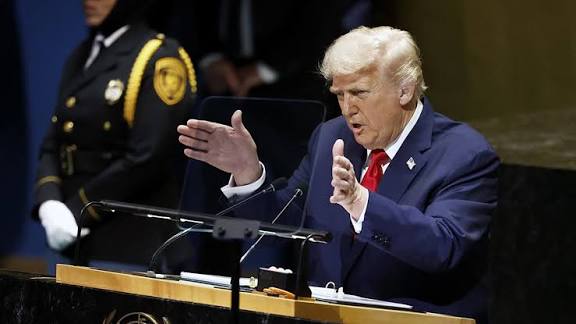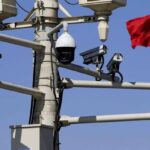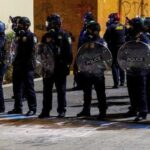New York — President Donald Trump’s blunt address to the United Nations General Assembly this week — in which he repeatedly chided the world body and took credit for ending foreign conflicts — has renewed a familiar, uncomfortable question: what role does the UN actually play in preventing and ending wars when powerful member states act unilaterally?
Speaking from the General Assembly podium, Trump fired a string of barbs at the institution, accusing it of failing to live up to its founding purpose and at times mocking its priorities and procedures. He also sought to frame the United States — and his own diplomacy — as the decisive force behind recent conflict-management efforts, a line that won applause in some corners even as it prompted awkward shifts in the room.
Critics and fact-checkers were quick to push back on several of the claims in Trump’s speech, saying the president’s account glossed over complex international realities and in some cases repeated misleading assertions about the causes and outcomes of conflicts. The reporting and fact-check analyses that followed the address underscored a broader problem: grand declarations at the UN do not always translate into the complex, patient diplomacy and institutional cooperation that many conflicts require.
The timing of the speech also matters. Washington has been heavily engaged — through a mix of direct diplomacy and covert channels — in efforts to broker interim arrangements in Gaza and press for de-escalation in Ukraine. U.S. envoys told partners at the assembly they were pursuing a package of measures aimed at a ceasefire and hostage releases in Gaza, and the president later signalled optimism that “some kind of deal” might be close. But on-the-ground fighting and deep mistrust between parties mean any diplomatic progress will be fragile and contingent.
Opinion writers and regional analysts seized on the speech to argue that Trump’s rhetoric exposes a chronic weakness in multilateralism: the UN’s limited capacity to enforce peace when member states with the most leverage prefer bilateral pressure or military action. One prominent column described the scene as emblematic of a UN that is “unable to end wars,” noting that funding shortfalls, departures from some global agreements and selective engagement by major powers have hollowed out parts of the institution’s influence.
For many diplomats in New York, the episode was a familiar contradiction. The UN remains the world’s primary forum for airing collective concerns — sanctions, humanitarian access, peacekeeping mandates and legal norms — yet it has limited coercive tools to force settlements when the most powerful states are unwilling to back them. That gap is where national leaders’ unilateral diplomacy, or regional bargaining backed by force, often fills the vacuum. The result is repeated cycles in which the UN debates and documents crises even as fighting continues.
What happens next may depend less on rhetoric at the podium than on quiet bargaining among capitals. Even as Trump touts possible breakthroughs, seasoned U.N. and regional mediators warn that ceasefires and hostage deals require verifiable sequencing, neutral monitors and logistical guarantees that are rarely solved by speeches alone. If an agreement materializes it will likely be the product of weeks of behind-the-scenes diplomacy; if it fails, the UN will again be left to manage the humanitarian fallout rather than resolve the conflict itself.










